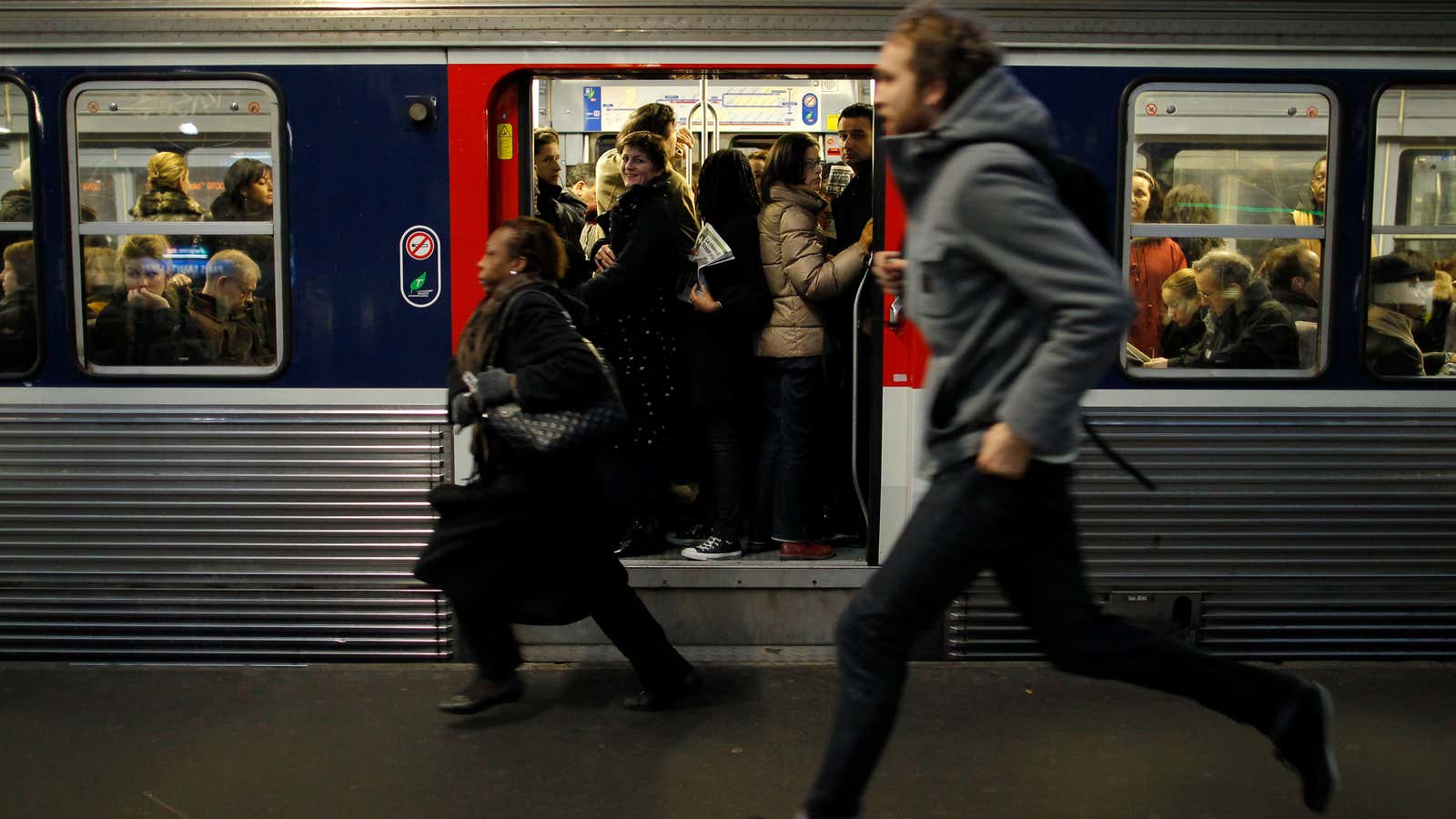The decision to make public transit free is a trend rolling out across Europe. Much like European cities before it, Luxembourg’s new government decided Dec. 5 to become the first country to make its public transportation system free for everyone, The Guardian reported.
The country, about the size of the tiny US state of Rhode Island and with a population of just 600,000, is in a unique position. Its capital Luxembourg City suffers some of the world’s worst traffic congestion as 400,000 commuters flood into the city each week to work. Luxembourg had quite cheap public transit already: an all-day rail pass costs riders just €4 ($4.60), and half that for a two-hour trip in a country that’s under 1,000 square miles in total. Anyone under 20 years old could already also ride for free. The €30 million these fees generated added up to just 3% of the system costs, CityLab reported. Making the decision to make its trains, trams, and buses free for everyone starting in 2020 was the logical next step.
There were promising precedents. Luxembourg’s decision follows similar moves by more than two dozen cities in France and Germany that cut or eliminated public transit fares in recent years. When the French city of Aubagne eliminated fees on 11 popular bus routes in 2008, ridership increased by 142% and car trips fell by 10% over three years. Even Paris is toying with the idea.
The first European capital to experiment with the idea was Tallinn, Estonia, in 2013. City residents paid $2.20 (€2) for a “green card” that granted them unlimited trips (Tallinn claimed its scheme still turned a €20 million annual profit). This summer, the small Baltic country made its entire national public transit system free, the world’s largest at the time, to serve Estonia’s 1.3 million people (the country’s city transit systems are still subject to fares).
A pattern appears to be emerging in Europe: Cities steadily reduce fares and offer citizens travel packages for a few Euros. It soon becomes obvious that cutting fares to zero, along with eliminating overhead for tickets and enforcement, brings its own political and economic benefits. Countries with progressive governments then embrace free public transit as a public good. Financial shortfalls can typically be recouped by taxing companies with more than a dozen or so employees (who tend to rely on the systems). In the French city of Dunkirk, for example, mayor Patrice Vergriete told the Guardian that eliminating fares boosted ridership on some rates by 50% to 85% and proved wildly popular. “You can’t put a price on mobility and social justice,” he said.
Many cities aren’t so progressive. In the US, fares remain relatively high (costing as much as $16 for a single trip on the Bay Area’s BART system) while ridership is generally falling (pdf). London will be hiking its rates, as ever, on Jan 2, 2019.
